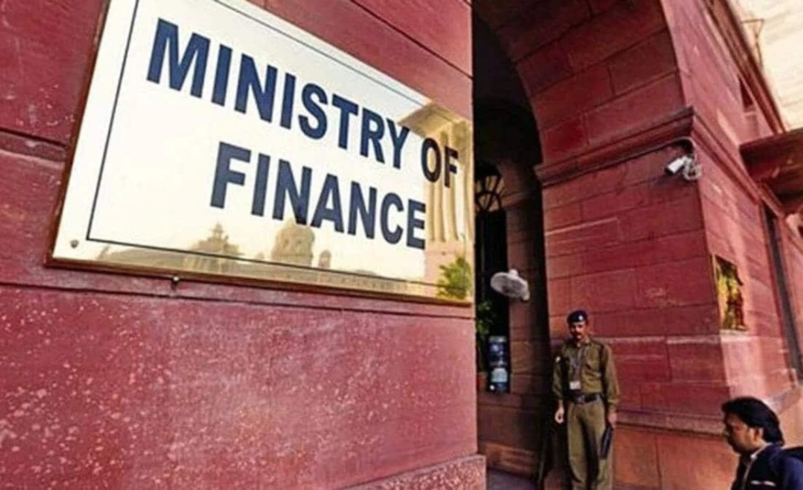In a significant administrative move, the Government of India has approved a top-level reshuffle in the Ministry of Finance, appointing new secretaries across four crucial departments. The Appointments Committee of the Cabinet (ACC) has cleared these appointments, marking a historic milestone and strategic leadership shift at North Block, especially as the nation navigates a tight fiscal roadmap amidst global economic uncertainties.
This latest bureaucratic rejig also marks a historic moment for the Department of Economic Affairs (DEA), with Anuradha Thakur becoming the first woman to be appointed as its Secretary. As India prepares for another critical Union Budget and faces complex fiscal challenges, the newly appointed team under Finance Minister Nirmala Sitharaman will play a pivotal role in steering the country’s economic strategy.
Let’s break down the key changes, their significance, and what lies ahead for India’s economic leadership.
Anuradha Thakur: First Woman to Head Department of Economic Affairs
Anuradha Thakur, a 1996-batch IAS officer from the Himachal Pradesh cadre, has been named as Officer on Special Duty (OSD) in the Department of Economic Affairs. She will formally take over as Secretary of the DEA after the superannuation of the current Secretary and Finance Secretary, Ajay Seth, on June 30, 2025.
This appointment marks a landmark moment in the history of the DEA — one of the most crucial departments in the Ministry of Finance, responsible for handling the Union Budget, economic policy, foreign investment, and financial market regulations.
Thakur, who is currently serving as Additional Secretary in the Ministry of Corporate Affairs, brings with her years of administrative experience, having handled key portfolios related to financial sector reforms and corporate governance.
Why This Appointment Matters:
Historic first: Anuradha Thakur will be the first woman to head the DEA.
Budget preparation: She will be instrumental in drafting the next Union Budget due early next year.
Policy leadership: As DEA Secretary, she will manage economic reforms, bilateral investment treaties, and capital market regulations at a time of global financial volatility.
Arvind Shrivastava Appointed as Secretary, Department of Revenue
Another crucial appointment is that of Arvind Shrivastava, a 1994-batch IAS officer from the Karnataka cadre, who takes charge as the new Secretary of the Department of Revenue. The department plays a central role in policy formulation related to direct and indirect taxes, customs, and financial intelligence.
Shrivastava’s appointment comes at a time when the government is aiming to expand its tax base, strengthen GST collections, and tackle financial crimes, making his leadership pivotal in achieving fiscal discipline and compliance.
Key Challenges Ahead:
Enhancing GST performance
Widening the direct tax base
Addressing tax disputes and enforcement
Collaborating with international bodies on financial crime prevention
Vumlunmang Vualnam Becomes Secretary, Department of Expenditure
The reshuffle also saw Vumlunmang Vualnam, a 1992-batch IAS officer from the Manipur cadre, being appointed as Secretary, Department of Expenditure. He replaces Manoj Govil, who has now been moved to the Cabinet Secretariat.
Vualnam, previously serving as the Civil Aviation Secretary, will now manage public financial management, government expenditure, and fiscal consolidation strategies for the Centre. His new role comes amid a year where tight fiscal targets, capital expenditure push, and fiscal deficit management are top priorities for the government.
Significance of This Move:
Fiscal management focus: Ensuring the government stays on track with its fiscal deficit targets.
Public spending control: Overseeing financial approvals and expenditures of all ministries.
Capital expenditure drive: Managing increased infrastructure outlays announced in the recent Budget.
K. Moses Chalai to Head Department of Public Enterprises
K. Moses Chalai, a 1990-batch IAS officer from Manipur, has been appointed as the new Secretary of the Department of Public Enterprises (DPE). He takes over from Arunish Chawla, who was holding additional charge of the department while serving as Secretary, DIPAM (Department of Investment and Public Asset Management).
Chalai’s appointment comes at a crucial juncture as the government continues its strategic disinvestment initiatives and seeks to enhance corporate governance and performance monitoring of Central Public Sector Enterprises (CPSEs).
Key Focus Areas for DPE:
Public sector reforms
Corporate governance frameworks for CPSEs
Asset monetisation and disinvestment strategies
Performance benchmarking for public enterprises
What This Reshuffle Signals for India’s Economic Strategy
The newly appointed team under Finance Minister Nirmala Sitharaman steps into office at a time of evolving fiscal and global uncertainties. With rising geopolitical tensions, fluctuating global commodity prices, and trade challenges — including reciprocal tariffs from countries like the United States — the leadership at North Block faces a demanding year.
The next 10 months are critical as this team will oversee the preparation of the next Union Budget and implement key financial reforms promised by the government. Each of these appointments reflects the government’s intent to place experienced officers with proven administrative records in strategic positions.
Likely Priorities for the New Leadership:
Staying within fiscal deficit targets amid global headwinds
Enhancing tax revenue collections and compliance
Boosting public sector efficiency and governance
Accelerating capital expenditure and infrastructure investments
Strengthening financial sector reforms and ease of doing business
Source : Business Today









